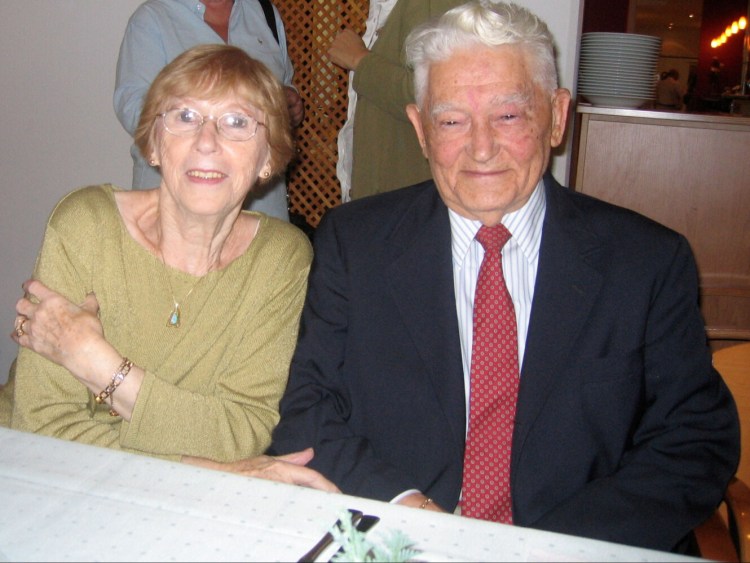Bella Tovey, who survived Nazi labor and concentration camps as a Jewish teenager in Poland and lived to tell her story to the U.S. Holocaust Memorial Museum, public schools, and Jewish congregations in Washington and elsewhere, died July 14 at a hospital in Atlanta. She was 92 and had been a resident of Silver Spring, Maryland, for 60 years.
The cause was cardiorespiratory failure, said a daughter, Roberta Tovey.
She was born Bella Jakubowicz on Sept. 18, 1926, in Sosnowiec, a city in Polish Silesia, near the border with Germany.
Her father owned a knitting factory that was taken over by the Germans during World War II. She was the eldest of four children, only two of whom survived the war. Her parents also died in the Holocaust.
She was 12 when Germany invaded Poland on Sept. 1, 1939. Soon after the war began, a German woman, assigned to civilian duty in Poland, confiscated the furniture in their family apartment. Another Jewish family was moved into their apartment to share living quarters.
There was a roundup of all Jewish men, including her father. He was released after a week. He was 39, and his auburn hair had turned gray. He never talked about what happened, she told the Holocaust Museum in a 1992 oral-history interview.
People began to disappear. There were executions by hanging for minor offenses. All Jews were required to attend as witnesses.
In 1943, Bella was deported to a labor camp in northern Germany, where she worked 12-hour shifts with rations of one daily bowl of soup and a pound of bread a week.
She witnessed acts of unspeakable cruelty – an SS guard snatching a baby from the arms of a mother and smashing the infant’s head against a concrete wall. But she also saw acts of mercy, such as when another guard opened a gate to release a teenage prisoner, then shouting after him: “Run! Run! Run! FAST! Lauf schnell!”
In December 1944 she arrived at the Bergen-Belsen death camp in Germany. Prisoners were packed into buildings at Bergen-Belsen so tightly, she said, they could not stretch their legs out to full length. But they died so quickly that soon there was room for a full leg stretch.
Bella was 18 in April 1945, when she was liberated by British soldiers at Bergen-Belsen. There were 60,000 starving prisoners in the camp, and the emaciated corpses of several thousands more were piled in stacks nearby.
She weighed 70 pounds and was covered with lice. It was spring, but it was cold. She asked for socks from a British soldier. As she put them on, she began crying because she did not have the calf muscle to keep them up.
From Bergen-Belsen, she went to a displaced-persons camp, and then by ship to New York in 1946, where an uncle became her American sponsor. Two years later, she married Henry Tovey, a survivor of the wartime Lodz Ghetto in Poland and the death camp at Auschwitz, whom she met aboard the ship to the United States. He died in 2016.
Survivors include two children, Roberta Tovey of Boston and Craig Tovey of Atlanta; and five grandchildren.
Settling in Silver Spring in the 1950s, Bella Tovey had planned to become an accountant. She was good with numbers.
But she changed her mind during a 1959 visit to her only surviving sister, Pnina, in Israel.
Instead she would concentrate on telling her Holocaust story. She spoke at a commemorative observance at Bergen-Belsen. She talked at schools in Europe, the United States and Canada. She taught Jewish traditions at Washington Hebrew Congregation.
“Until 1959, I had a bit of a detour with my God,” she told the Holocaust Museum project. “I was Jewish, but I wasn’t particularly traditional. . . . But when I went to Israel . . . and I walked through the streets of Jerusalem, I became a Jew. . . . I came back.”
Comments are not available on this story.
Send questions/comments to the editors.


